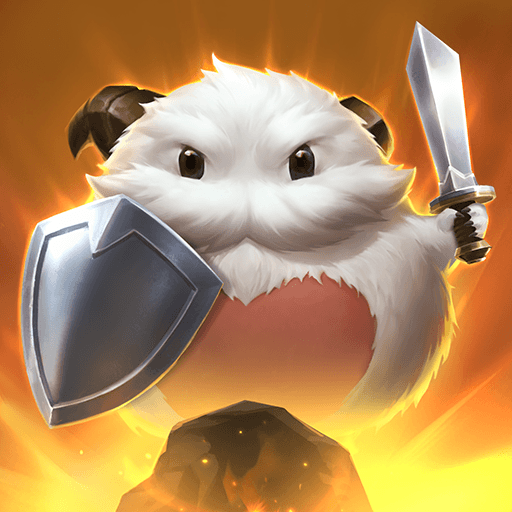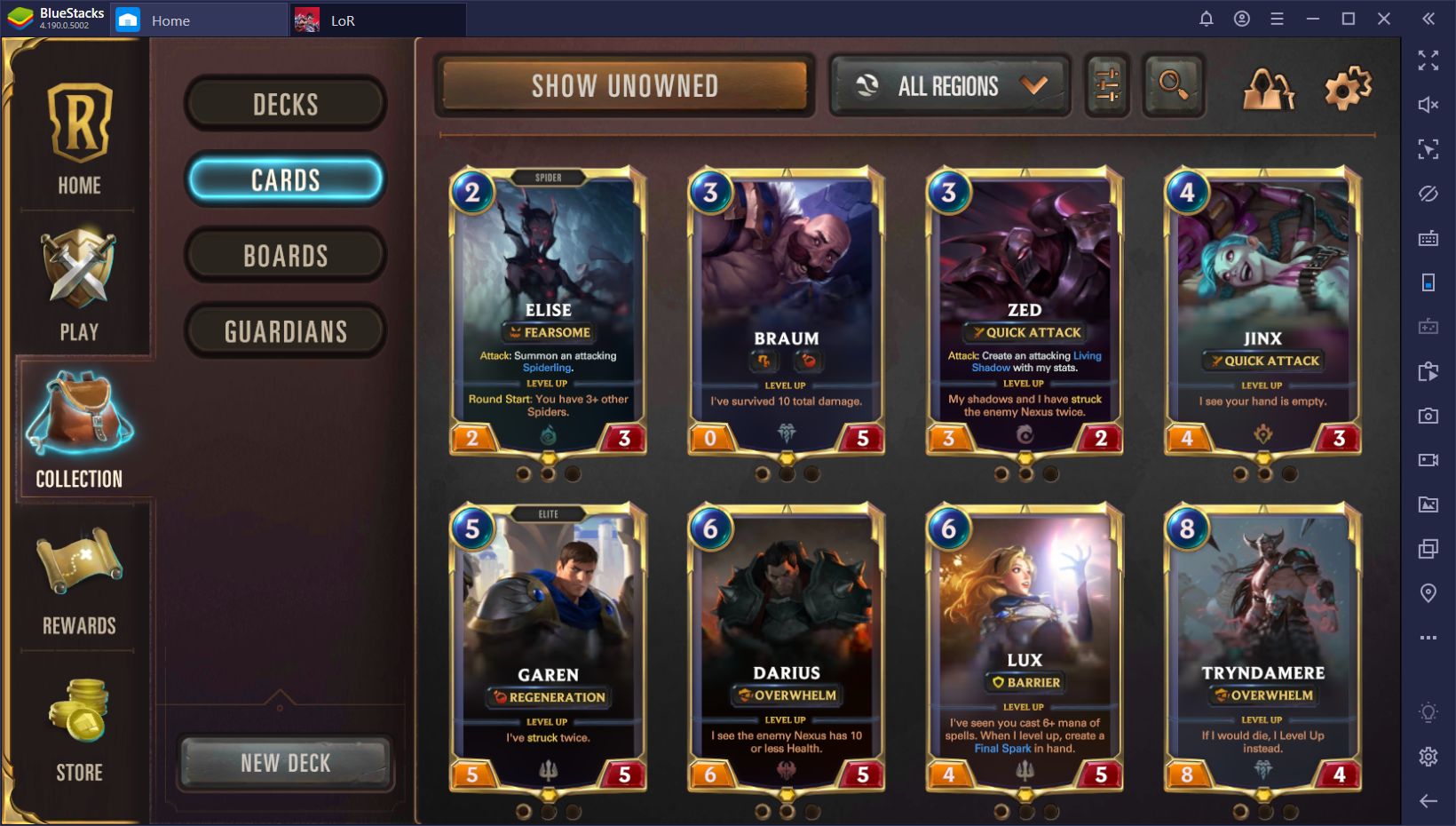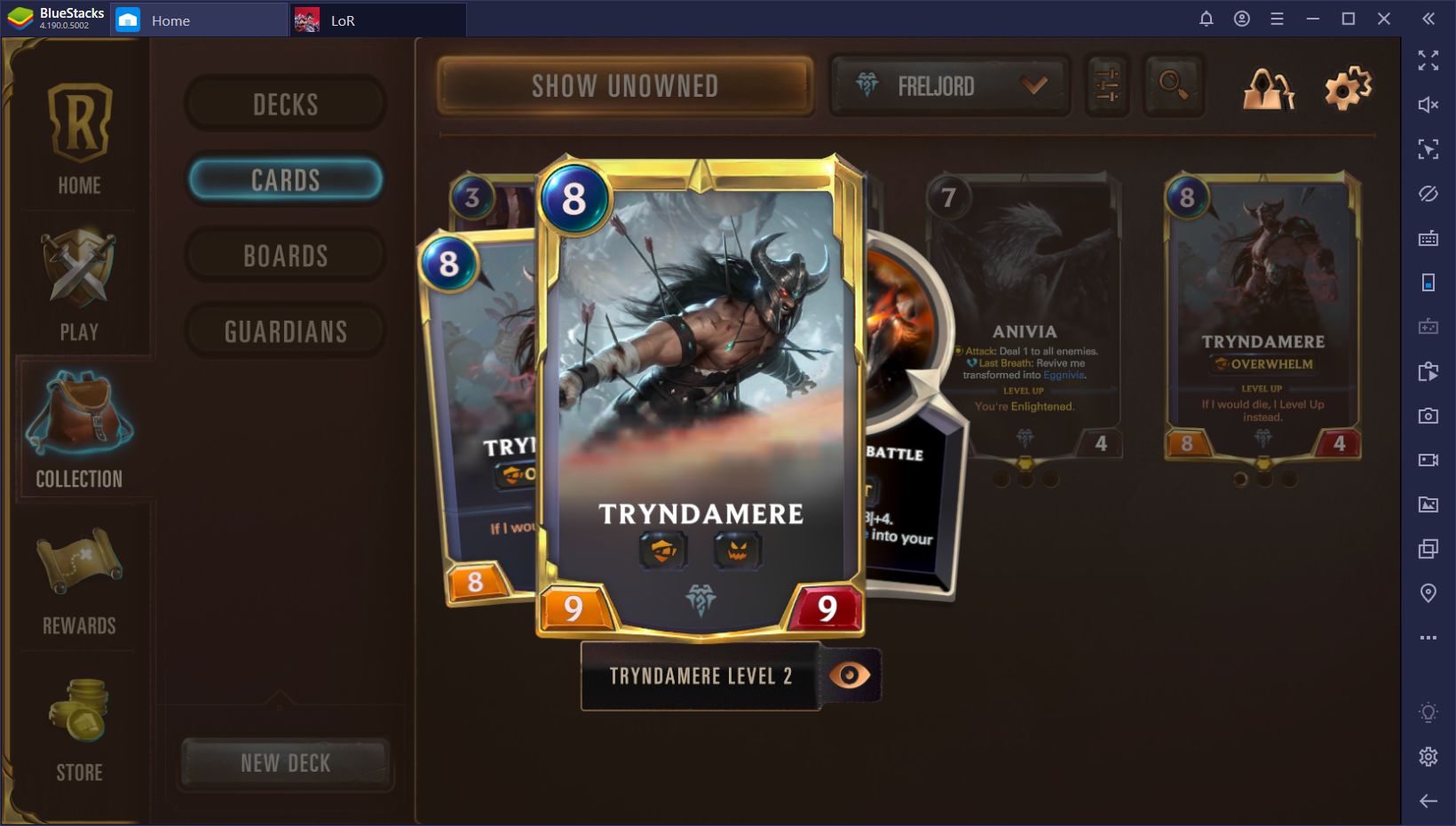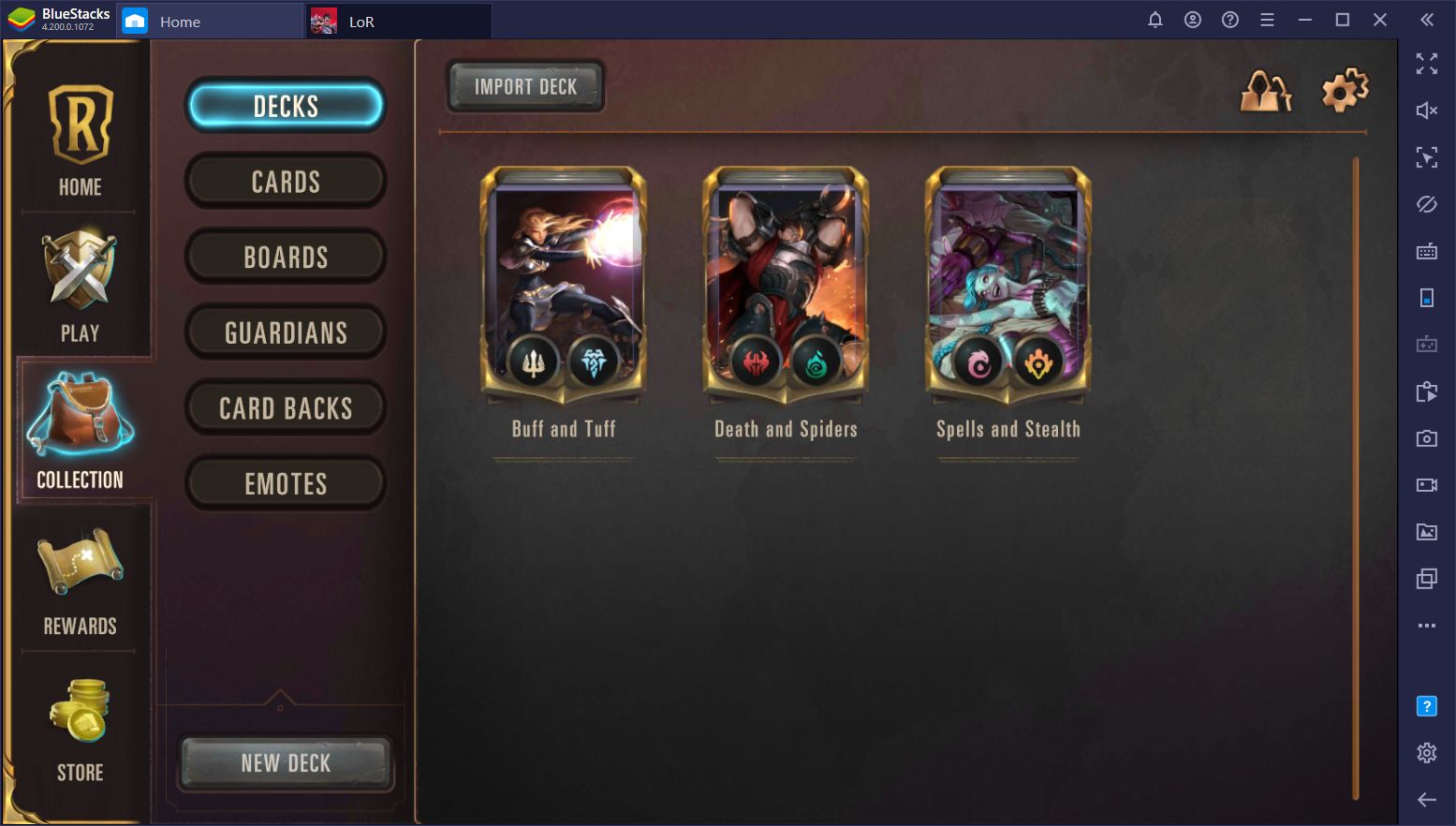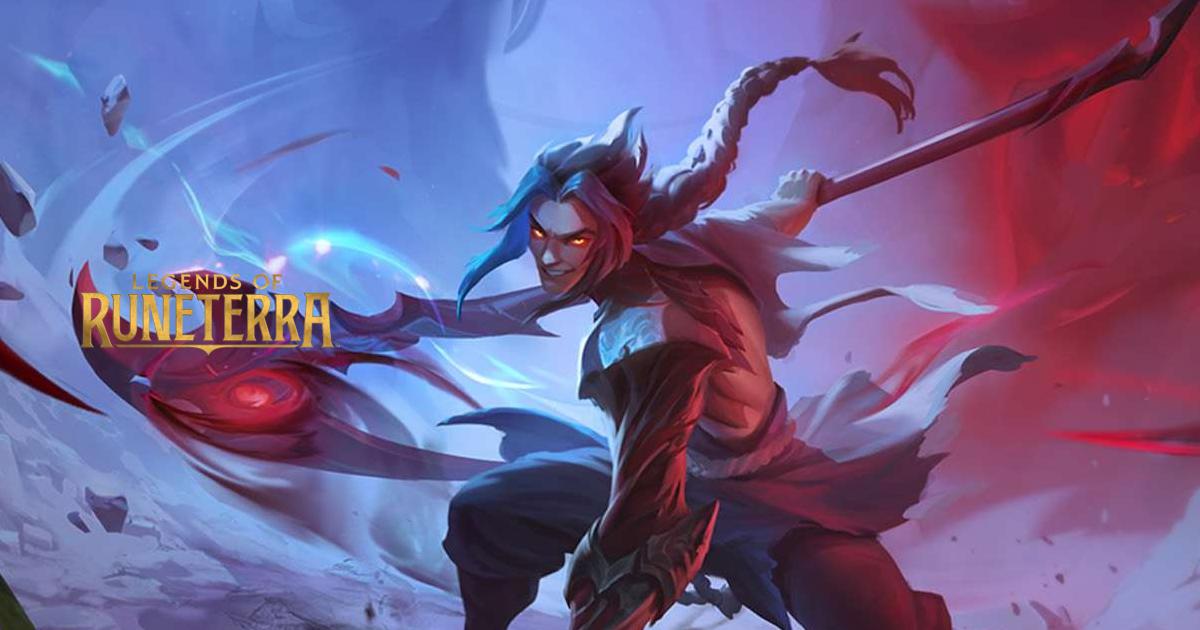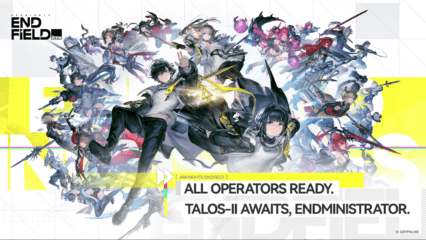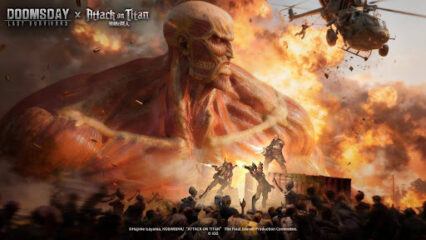Legends of Runeterra on PC: How to Strategize during a Match
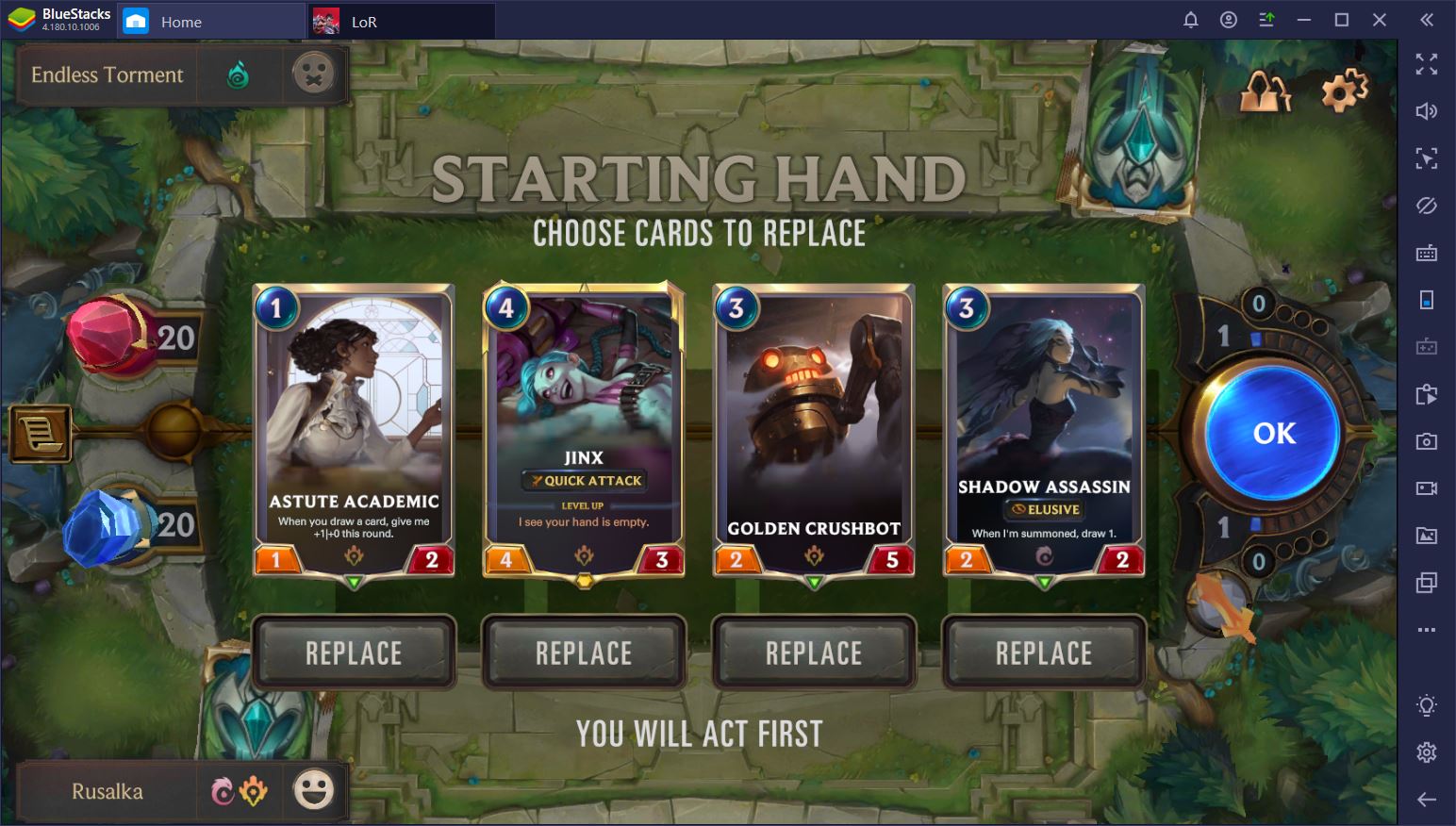
We’ve already covered the basics of playing Legends of Runeterra in our list of the best tips and tricks for beginners, but the more games you win, the more you improve your rank and the harder it becomes to defeat your opponents. If you feel like you’ve hit a “progression wall” and can no longer achieve a victory in at least 50% of your matches, it’s time to learn a few expert strategies.
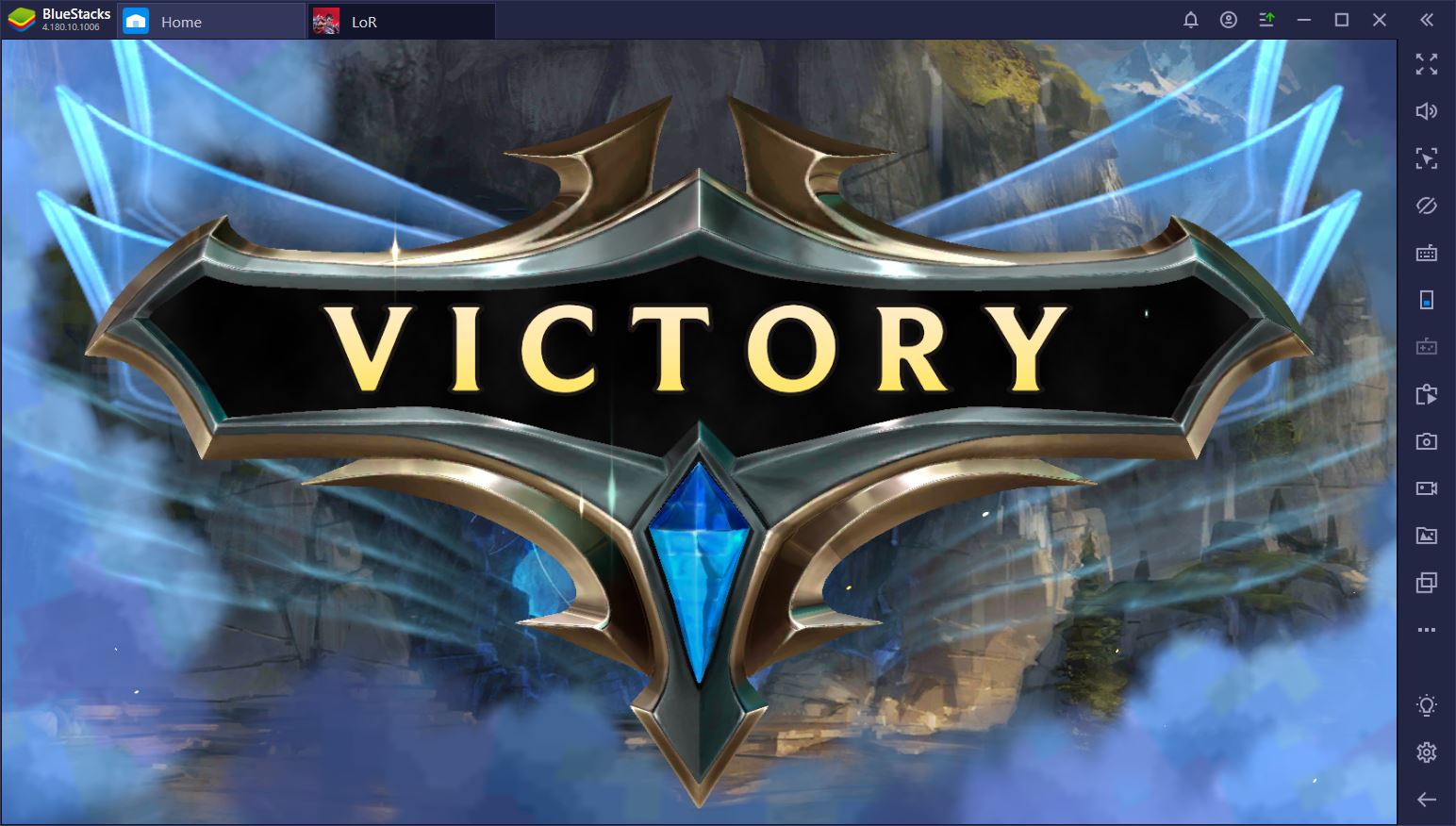
Now, we can’t promise you that once you’re done with this article, your win rate will skyrocket straight away. Most of the advanced tips we’ve included below take time to implement and you need to spend hours on the game in order to become familiar with each popular deck.
Nevertheless, if you do follow our advice, you’ll notice that you have a much better grasp of what happens each game. You’ll know exactly why you’ve won or lost a match, and this will serve as your first step towards improvement.
Size Up Your Opponent’s Deck
Like with every card game, knowledge is power in Legends of Runeterra. Why? Because even though you cannot see your opponent’s hand, if you have a good idea about the deck they are using, you can make educated guesses regarding their available cards and anticipate their moves. The better your guesswork, the more likely you are to win the game.
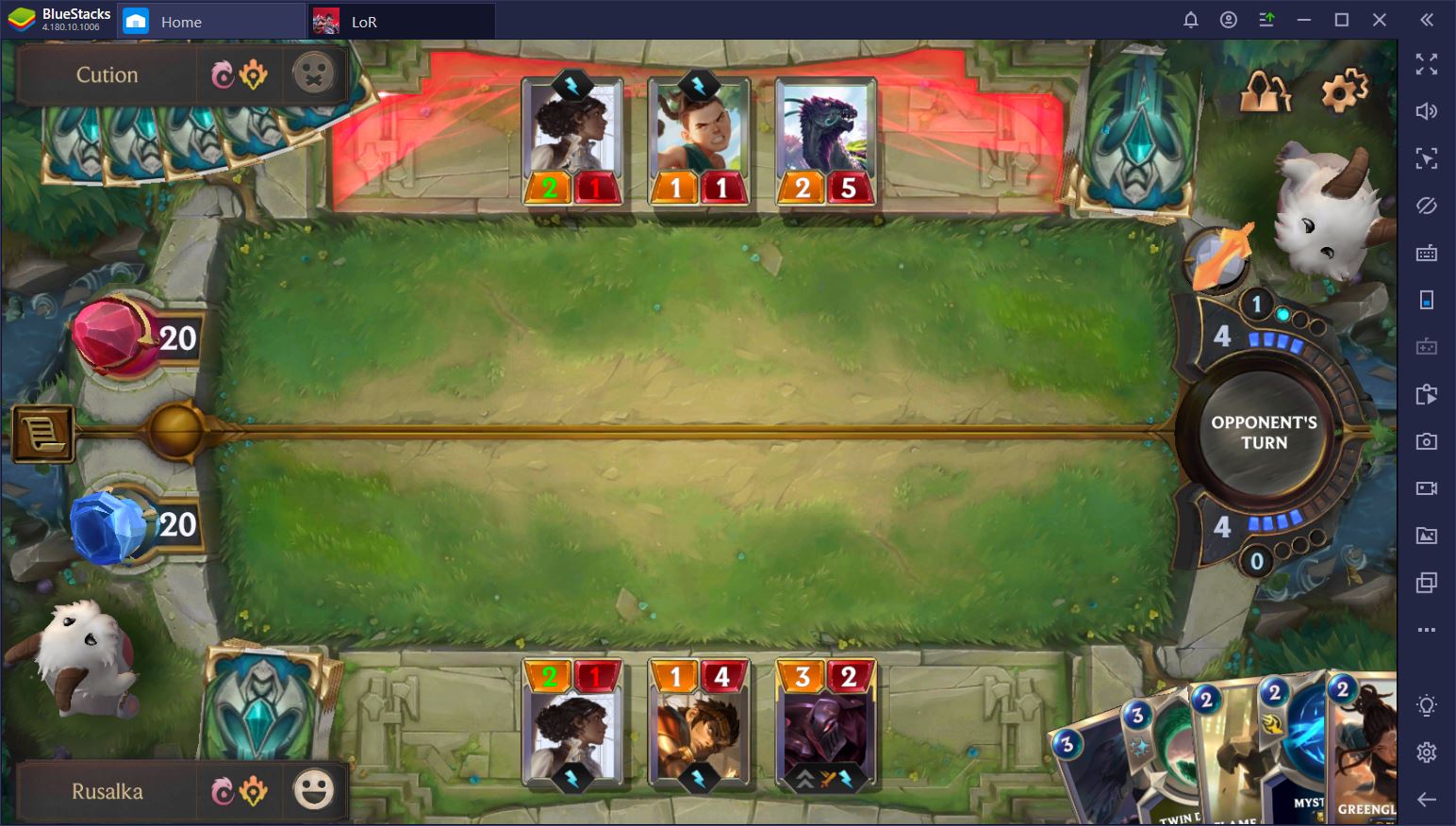
Of course, you can’t be expected to memorize hundreds of cards and their synergies. Fortunately, you don’t have to. During every meta, there are a few decks that are more popular than others and, so long as you’re familiar with these decks, you’re not likely to run into many surprises.
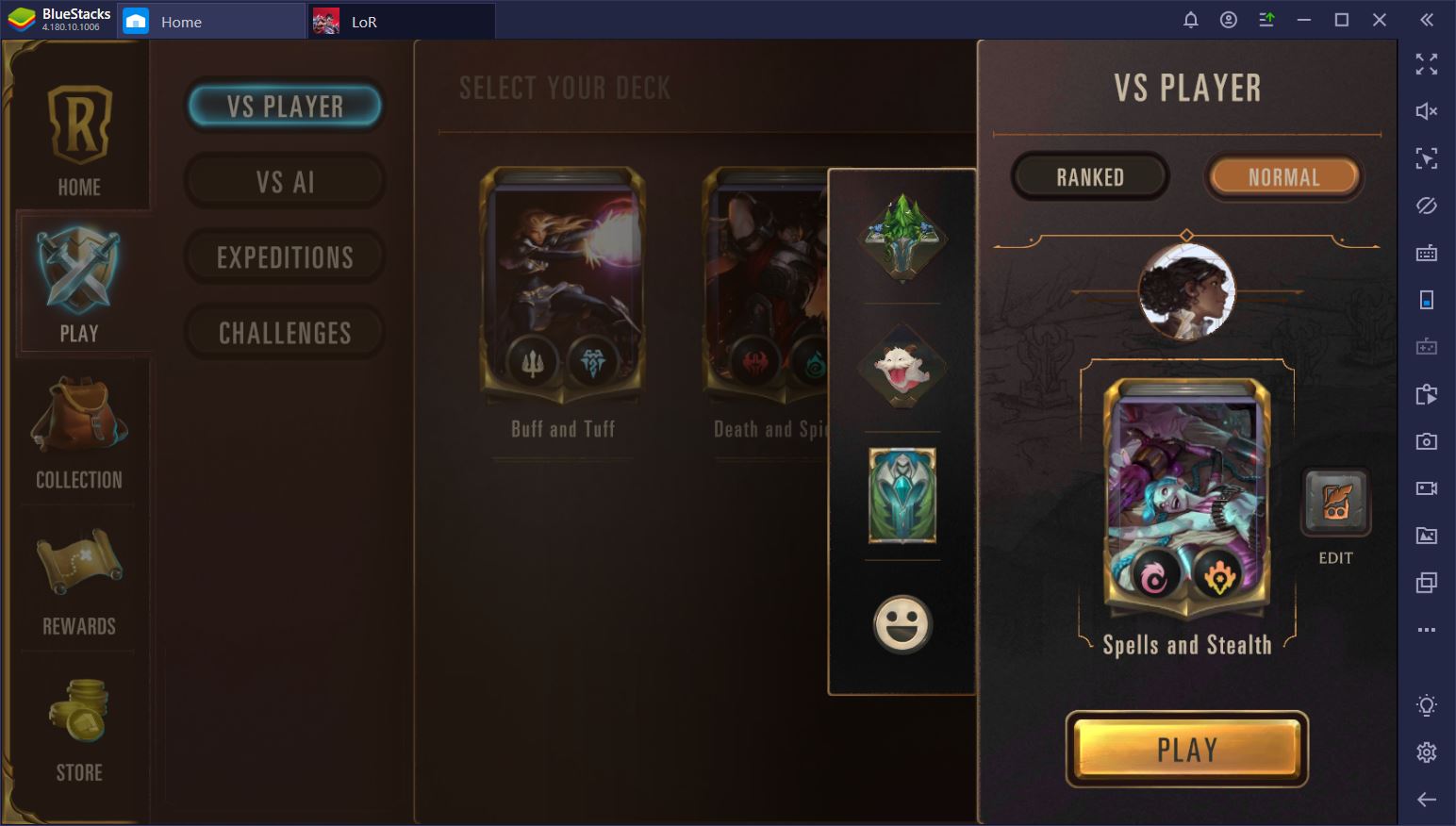
At the beginning of each game, you get some information about your opponent’s deck, such as the Champion they’re using and the region they rely on the most. Using this information and the first few cards played by your opponent, you can determine the archetype of their deck and compare it to your own.
This should be your first step during each match. As you compare the two decks, try to answer these essential questions:
- Who is the aggressor in this matchup? In other words, does your opponent use an aggro deck or do you?
- Which of the two decks is faster? This is especially useful to know if both you and your opponent are using the same deck typology.
To determine the “speed” of a deck, you have to imagine the graph that illustrates the number of cards in the deck according to cost (also referred to as a “mana curve”). Where does this graph peak? If the highest number of cards falls between 1 and 3 cost, you’re dealing with an fast-paced, aggro deck. Otherwise, you might be looking at a control or mid-range deck.
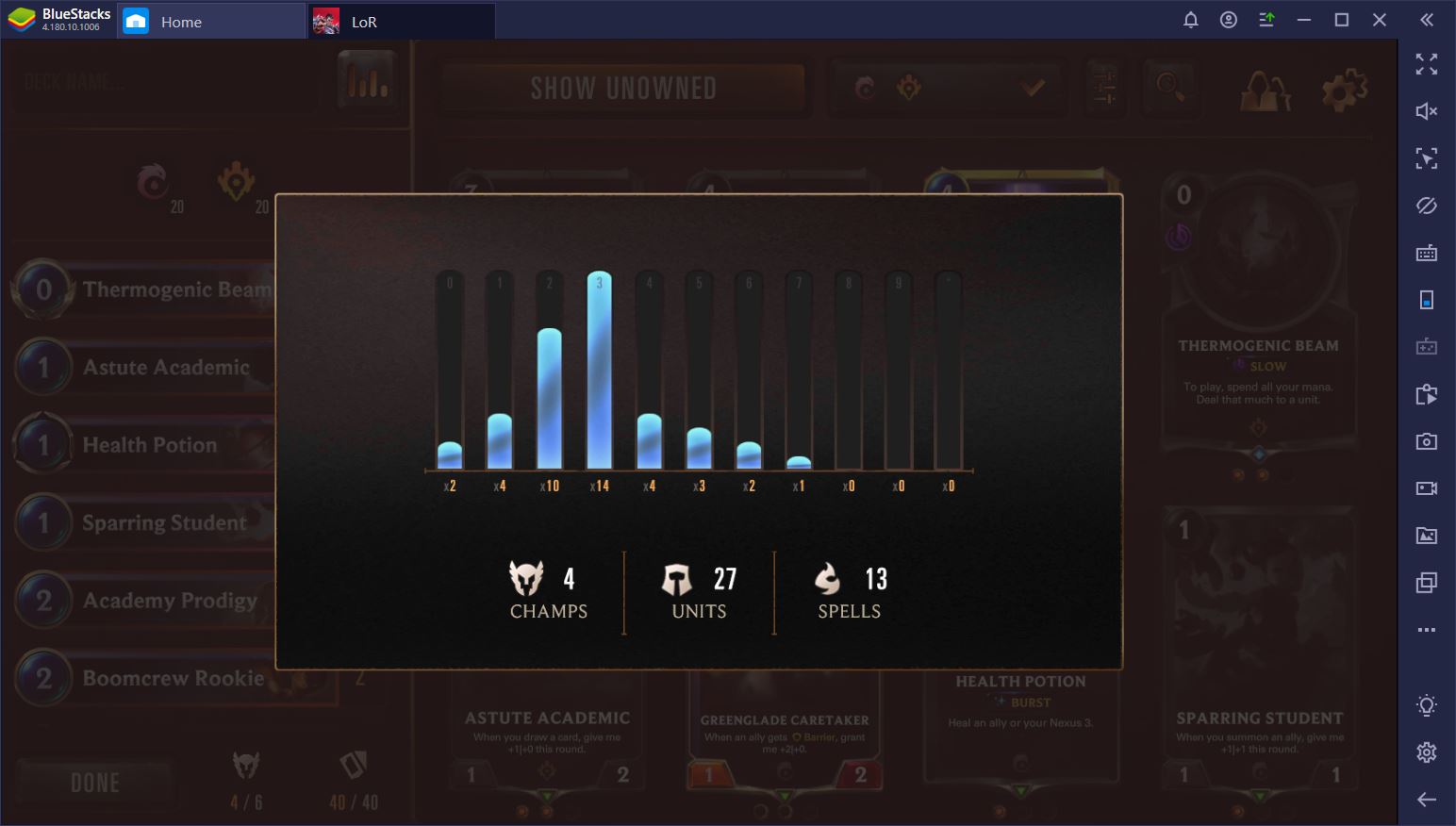
Based on this comparison, you can move on to the next step, which is to acknowledge your opponent’s win condition and determine your own lose/win conditions as a result.
Decide on Your Win Condition
Each deck typology and each specific deck, for that matter, has a more or less unique win condition. As you play more with a deck, you begin to see exactly what this condition is, but keep an open mind. Yes, it’s important to know how your deck works, but if you want to have a higher win rate, you must also know how your opponent’s deck can and should change your plan.

For example, when you play with a Spider Aggro deck, you know that your overall win condition is to swarm your opponent early before they get to play their best cards. The more the game tarries, the less likely you are to win because your low-cost, relatively weak units can’t compete against mid-range or high-cost cards.
Play Legends of Runeterra on PC
However, if you’re up against a Discard Aggro deck, you have to consider that your opponent’s game is even faster than yours. As such, it can be a good idea to slow your game down a bit and focus on board control (see below) instead. In this case, drawing the game out until your Rhasa and Darius are in position is more likely to get you the win than trying to push your luck against the opponent’s generous collection of direct damage cards.
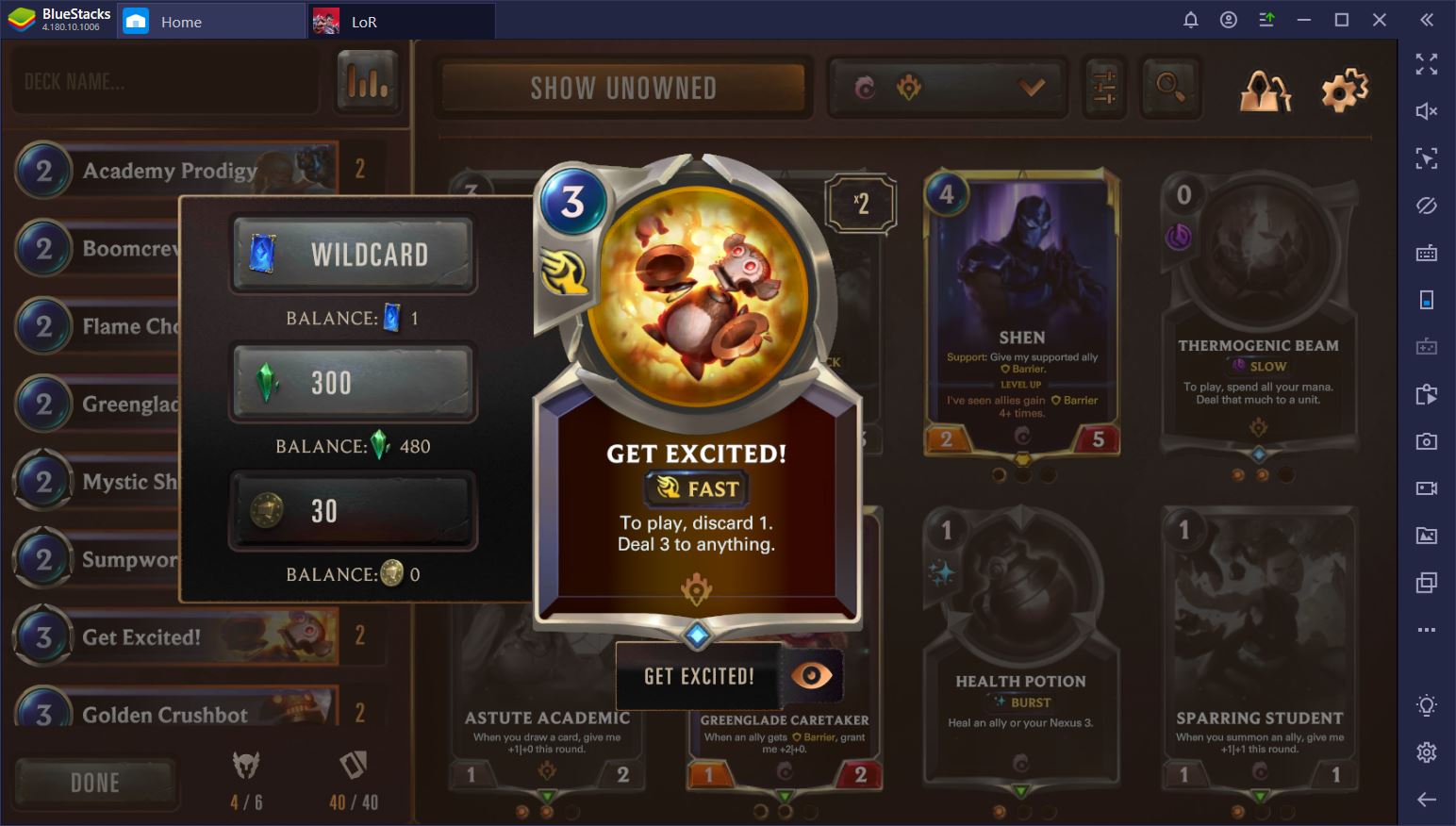
If, on the other hand, you’re up against champions like Anivia or Braum, you know that your opponent’s deck shines during the late-game. In addition, you know that you only have a limited amount of time to win before your opponent builds an impenetrable defense, so you have to go all-out on aggression.
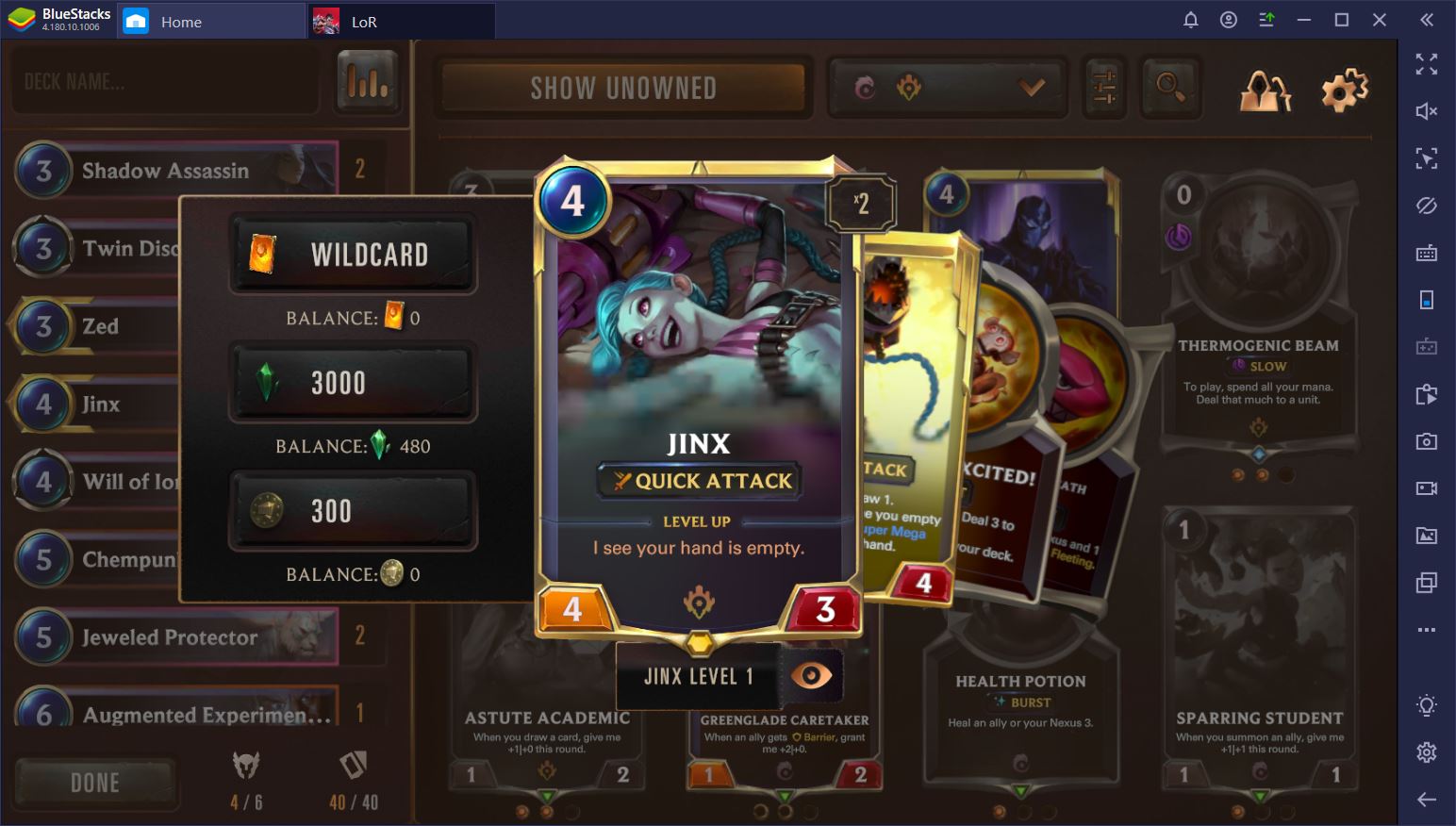
Always plan your next couple of moves based on:
- Your win/lose conditions and
- Board control.
Keep the Board under Your Control
Board control can win or lose you the game, especially if you’re playing a slower deck archetype. What this basically refers to is whether you or your opponent have more power on the board at any given time. To better understand the concept, consider that a unit can serve one or several of the following purposes:
- Block incoming damage.
- Deal damage to your opponent.
- Generate spells.
- Summon units.
- Draw cards.
- Synergize with other abilities.
The longer one of your units is on the board, the more likely it is that they will be able to fulfil some of these roles and add value to your game. This is why you want to protect as many of your units as possible, unless this contradicts your specific strategy or your overarching goal to survive.
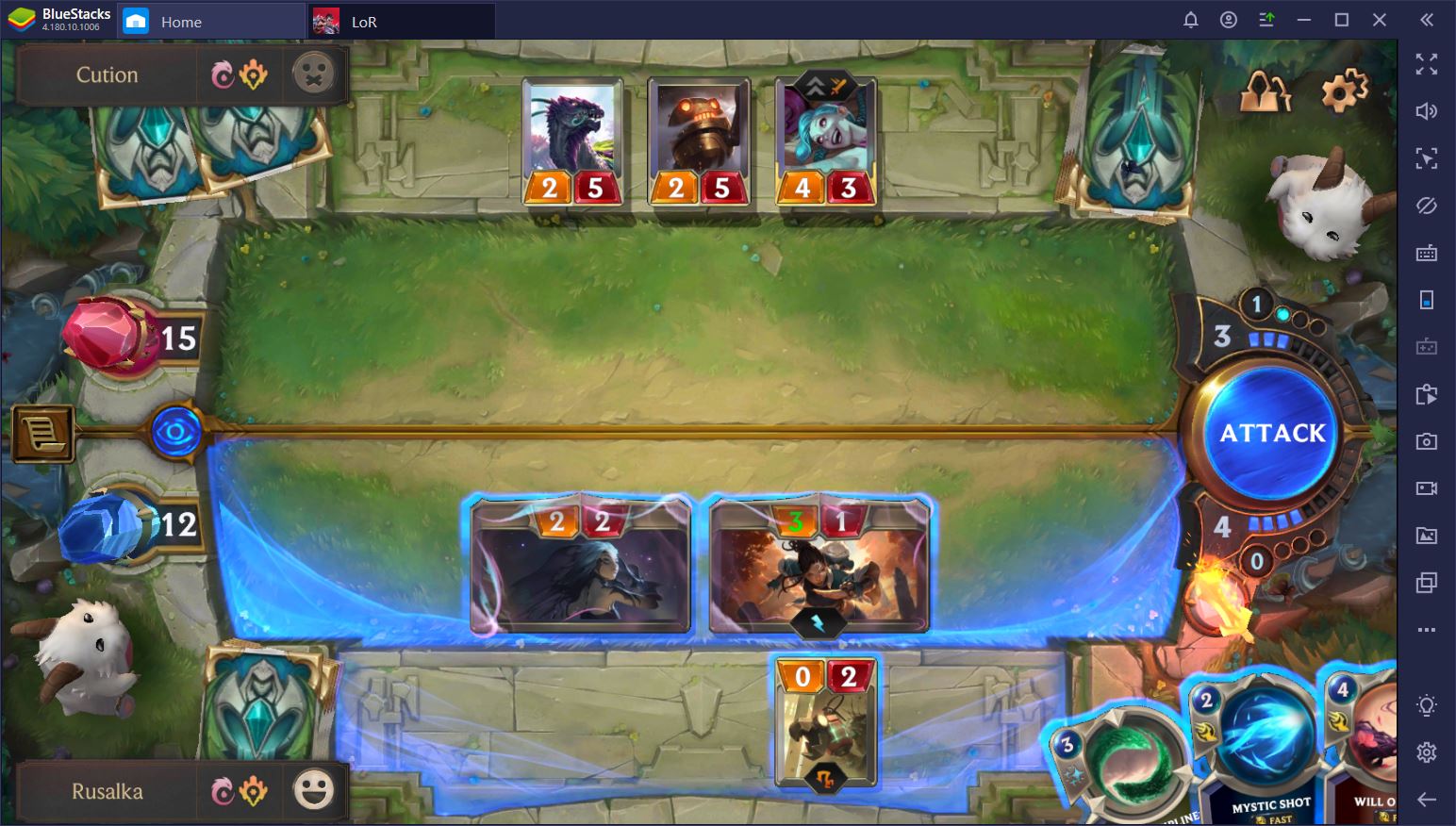
One great way to maintain board control is to make advantageous exchanges. For example, say that you have the choice to block a 2/3 unit using a 3/2 or a 3/4 ally. If you use your 3/2 unit for the block, you lose in the exchange because the opponent has gotten rid of a stronger unit than the one they used in the process. If, on the other hand, you use the 3/4 unit and manage to keep it alive for another round, you win the exchange because you’ve eliminated one of the opponent’s units without sacrificing any of yours.
Sometimes, it isn’t possible to make an advantageous trade, such as, for instance, when you’re about to take a lot of damage and you have to use whatever unit you can to block the hit. Other times, such as when you’re playing an Aggro deck, board control is less important than damaging your opponent’s Artifact. In other words, you have to adapt to each unique situation.
At the end of the day, the guidelines above should be just that. It’s up to you to determine when and how they should be put into practice and whether or not this moves your game forward. This won’t come naturally at first, but once you have 100+ games under your belt, you’ll start to notice the difference.

